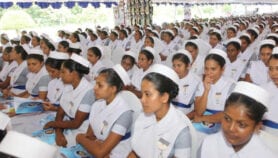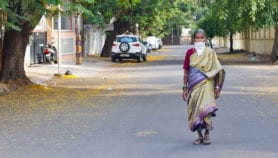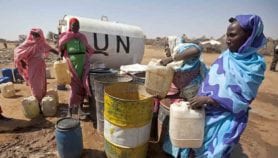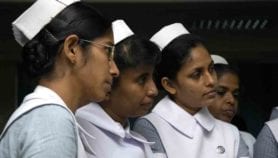By: Pablo Kreimer
Send to a friend
The details you provide on this page will not be used to send unsolicited email, and will not be sold to a 3rd party. See privacy policy.
Pablo Kreimer complains that, when developing countries send scientists abroad, the social and intellectual relevance to local circumstances of the training they receive is largely ignored.
The author is an academic at the Universidad Nacional de Quilmes in Argentina, specialising in the sociology and politics of science and technology.
A country’s scientific traditions are usually built up over many generations around a set of cultural, cognitive and institutional dimensions. These tend to determine how both science and its practice are perceived within that country – and, eventually, perceptions of science’s role in society.
In countries – such as many of those in the developing world – that lie on the periphery of global scientific activities, these traditions are influenced by two sets of factors. One reflects local conditions, such as the availability and use of resources, policies on research and development, and the way that research is organised. The other encompasses predominant trends in ‘mainstream’ international research centres. The balance between these two influences can be significantly affected by the way that the emigration of doctoral and postdoctoral research is handled.
On a personal level, the decision for scientists to migrate away from their home countries may either be ‘strategic’ (improving ones prospects back home by training at a foreign centre of excellence) or ‘forced’ by political or economic circumstances (scarcity of local institutional space or research resources, for example). But while most policies in developing countries have focused on attracting scientists back after studies abroad and, more recently, looking at ways to network the dispersed scientific community or ‘diaspora’, the social and intellectual relevance of foreign training to local circumstances has generally been ignored.
Such ‘socio-cognitive’ dimensions of migration include the nature of foreign and domestic laboratory research, the impact of migratory mechanisms on local research agendas, and the usefulness of knowledge gained abroad to the ‘donor’ country. Developing countries must start to shift their attention to the broader implications of scientists returning to their country of origin, particularly with regard to relevant knowledge gained during their time abroad. Without incorporating such thinking into long-term science and technology policies, these countries will fail to fully capitalise on the value added to their scientists abroad.
Consider a scenario familiar to those of us in Latin America. A young researcher decides to go and work in a foreign research centre. They approach a senior colleague who, through their professional contacts, helps to arrange a suitable research post. On arrival, the researcher is assigned an (unfamiliar) work topic from the many on the ‘recipient’ group’s agenda.
The research stays for a few years, all the while developing their working relationships with other researchers, acquiring expertise in their subject, and improving their technical skills. The researcher now decides to return to their country of origin, retaining the subject area in which they have specialised and developing a research team of their own. They are careful to maintain ties with the foreign research centre in which they trained as this helps to secure funding and raise their status through joint publications. Some members of the new research team will follow in their footsteps, and go to work at the foreign research centre for short periods.
On the surface it appears that the original migrant has reaped multiple rewards for their home country. As well as personally gaining greater local legitimacy as an ‘integrated’ member of the international scientific community, the researcher has brought in investment, enhanced the reputation of a local institute and provided opportunities for their colleagues.
But there are underlying problems. Firstly, the research now propagating in the home country has basically imported the ‘host’ country’s agenda. In fact, joint research projects may actually mean the new lab effectively operates as an outpost of the foreign centre, with the latter calling the shots. For this reason, a fair amount of the local research remains ‘routine’, with little room for conceptual or methodological innovation, with the lab simply align itself to trends in ‘mainstream’ international research centres.
Secondly, the nature of the knowledge employed has been constructed in an entirely different context to that found locally. Although the migrant researcher may have gained ‘socially useful’ knowledge, this remains untapped (so-called “Applicable Knowledge Not Applied”). Contrary to the usual claims, very little research subsequently conducted in the home country is effectively applied to social or economic goods or processes, or to satisfying local social and economic needs.
Instead, the growing internationalisation of research in Latin America (and other developing countries where migration is a significant factor) is gradually generating modes of knowledge production that are more in line with laboratory agendas in the advanced ‘host’ countries than with the (real or potential) utility of such knowledge locally. And through the foreign training of researchers, this scarcity of socially-applied knowledge permeates from within home country laboratories, not only institutionally but also in the social and intellectual dimensions of daily research practices.
While most Latin American science and technology policy has concentrated on promoting the ‘excellence’ and ‘internationalisation’ of local research, migration policy has been laissez-faire, simply ignoring the problem of local knowledge use and thus perpetuating these practices. New science and technology policies must therefore take into consideration not only where young scientists will spend their time abroad and with whom, but also how the conceptual issues they are exposed to can benefit the local society.
Policy makers must probe more thoroughly how the methods, techniques and other skills learned by researchers can be applied on return to their home country, how their stays abroad can help to introduce new techniques and conceptual issues into the local society, and what real – both social and economic – applications they have. They must respond to these issues by considering what kind of conditions (including funding, resources, organisational structures, and institutions) are needed to take advantage of foreign centres of ‘excellence’ and thereby improve local scientific solutions to social and economic problems.













